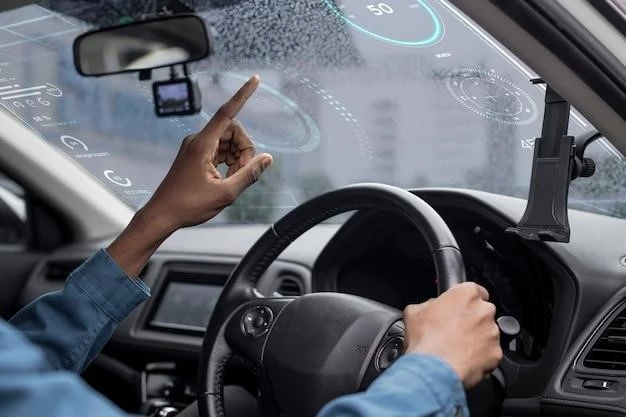The advent of Artificial Intelligence (AI) has revolutionized various sectors‚ and transportation is no exception. From self-driving cars to advanced traffic management systems‚ AI is transforming how we move around. While these advancements promise efficiency‚ safety‚ and convenience‚ they also raise critical moral implications that we must address.

The Ethical Dilemma of Automation
One of the most pressing concerns is the ethical dilemma of automation. As AI takes over driving tasks‚ we must grapple with the consequences of accidents. Who is responsible when a self-driving car crashes? The manufacturer‚ the AI system‚ or the passenger? This question is particularly complex in scenarios where the AI has to make split-second decisions that involve human lives. Imagine a situation where a self-driving car must choose between hitting a pedestrian or swerving into oncoming traffic. Such scenarios highlight the need for clear ethical guidelines and legal frameworks that govern AI-driven transportation.
Moreover‚ the automation of transportation jobs raises concerns about unemployment. As self-driving trucks become more commonplace‚ what happens to the millions of truck drivers who lose their livelihoods? While AI may create new jobs in the field of AI development and maintenance‚ it’s crucial to address the potential social and economic disruptions caused by automation.
Data Privacy and Security Concerns
AI-powered transportation systems rely heavily on data collection. Self-driving cars collect vast amounts of information about our driving habits‚ location‚ and even our personal preferences. This raises significant concerns about data privacy and security. How is this data being used‚ stored‚ and protected? Who has access to it? These questions are particularly relevant in the context of data breaches and the potential misuse of personal information.
Bias and Discrimination
AI systems are trained on data‚ and if that data reflects existing biases in society‚ the AI itself can perpetuate those biases. For example‚ if a self-driving car is trained on data that shows certain demographics are more likely to be involved in accidents‚ it might make discriminatory decisions in real-world scenarios. It’s imperative to ensure that AI systems are trained on diverse and unbiased data to minimize the risk of discrimination.

My Personal Experience
I recently had the opportunity to test drive a self-driving car in a controlled environment. While the experience was fascinating and the technology was impressive‚ it also raised questions about the moral implications. I couldn’t help but wonder about the consequences if the car had encountered an unexpected obstacle or made a wrong decision. It reinforced the importance of having robust ethical guidelines and clear legal frameworks in place for AI-driven transportation.
Conclusion
The integration of AI into transportation holds immense potential for improving efficiency‚ safety‚ and convenience. However‚ we must not ignore the ethical and moral implications. We need to address concerns about automation‚ data privacy‚ bias‚ and discrimination. Open dialogue‚ transparent research‚ and collaboration between developers‚ policymakers‚ and the public are crucial for navigating these challenges and ensuring that AI-powered transportation benefits society in a responsible and ethical manner.










